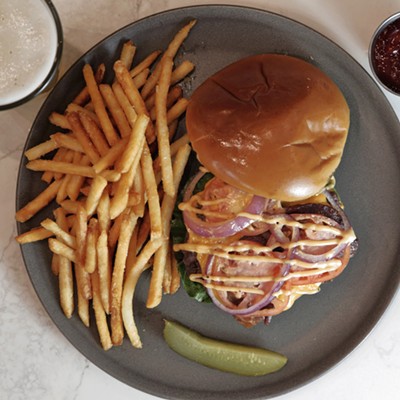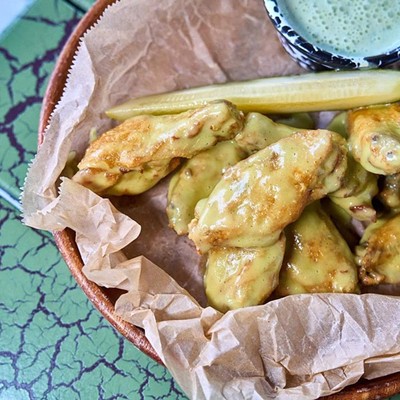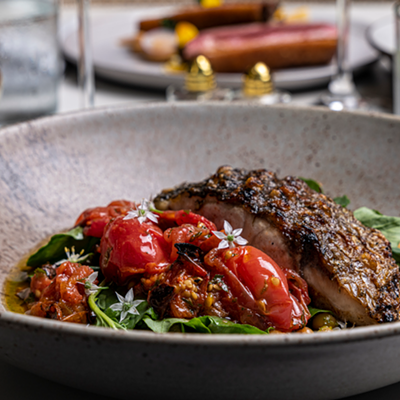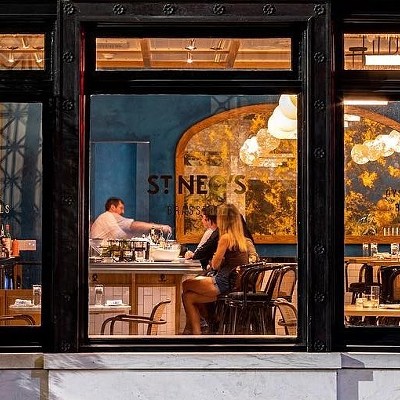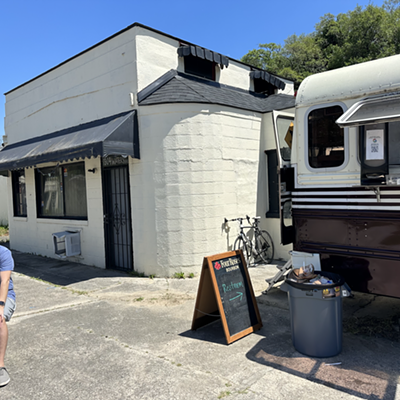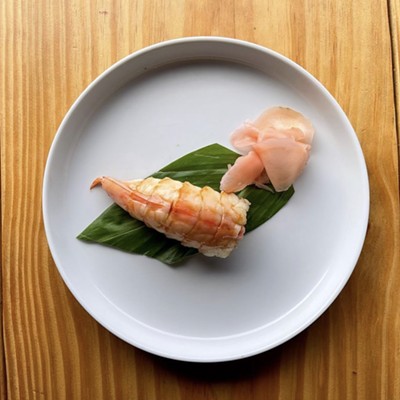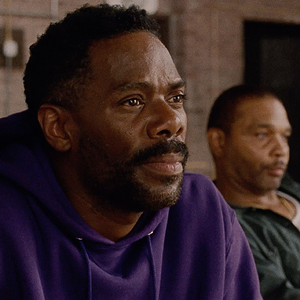Fleeting is the name of Savannah’s newest restaurant. Located on the ground floor of the brand new Thompson Hotel in the middle of the Eastern Wharf project, Executive Chef Rob Newton is fascinated with Southern food and looking forward to getting to know this corner of The South.
He’s also the author of a cookbook “Seeking The South” which explores the regionality of Southern cuisine. I enjoyed a beautiful dinner on opening night at Fleeting back on September 16th. I look forward to a return visit. In the meantime, our conversation:
JB: When Savannah first came up on your radar, what was you initial reaction?
RN: Excited. Excited for the historical nature of the city, but also excited because...I wrote a book (about Southern food) and this is the region where I spent the least amount of time in my career. So I was excited about that at a base level.
JB: How long did you work on the book?
RN: A couple of years. At least. Four years from inception, but 2 years of working on it.
JB: Where’d the initial motivation come from?
RN: I was living in New York at the time. I was doing a lot of various Southern food exploration restaurants there. A fried chicken place, a modern Southern place. I felt like my viewpoint on the South was..unique is a strong word but. Cooking food from the South, being from The South and not being in the South offered me a different perspective. The way I approached my menus was I looked at The South regionally.
What I grew up eating in the Ozarks is completely different mostly than what people grew up eating here in Savannah or this region at large. It’s a different thing. That was one of the major things I wanted to get across was to have this dialogue of regionality in The South.
JB: As you prepared to make the move (from Nashville), what excited you most?
RN: The historic nature, for sure. But, and this is going to sound like a PR move, but I really loved the Thompson brand. I’ve been a fan for a long time. I used to go to the very first one in New York. I used to live on Thompson and Sullivan in SOHO a long time ago. It was right down the street.
I also used to go to the one in Nashville all the time. That says a lot when you’d go to a hotel to hang out and eat. I did it pretty frequently. I felt like I could be supported here. Do some things I hadn’t done before here. I didn’t have to mull it over too long.
JB: Do you think the stigma of “Hotel restaurant” is a tired bit and people need to get over it?
RN: Yeah. Especially coming out of COVID. There are a lot guys like me that used to own their own places who are now doing things in hotels. It’s not some afterthought. They are full realized restaurants. They aren’t an amenity. They are full on restaurants. At a higher level than some other restaurants. Our goals our lofty.
To your question, I do think you will see more chefs doing this more. Owning a restaurant is very very challenging. At a baseline. In the climate that we are in now. It takes a very special set of circumstances to pull off the chef/owner thing.
I opened my first restaurant 10 years ago. I don’t have them anymore, but the price of a pork chop hasn’t changed in those ten years. But pork prices have at least doubled. I think there’s a perception that the price stays relatively the same. We need to deliver on that at the same price.
That’s the long winded way of saying you get helped out to do your thing as a chef in a hotel. You have more outlets for things.
JB: Your approach to your menu. We went through the phase with the menu changing daily and a date stamped on it.
RN: I’m guilty of that!! (laughs)
JB: Obviously seasonal the obvious choice, but how often do you plan to rotate your menu? What’s your vision for that?
RN: I change something every week. I don’t believe in wholesale menu change. We are open Tuesday to Saturday. That’s bad for the kitchen, bad for the guests really and bad for the staff. It really ties in to the notion of Fleeting as a restaurant and Fleeting as a notion of seasonality and coming and going of produce. When strawberries are done? They are done. We’ll move on to the next thing.
I’ve kind of always cooked that way. This will be an extension of that.
JB: Speaking of that. Have you had a soft landing? Good relationships with farmers and suppliers.
RN: Yeah! Just gearing up and getting to know people, it has been great. I go to the Farmers Market. I go kind of early. It’s small, but it’s nice. It’s beautiful to walk through. People are friendly. I can find a place to park, which is great.
If you can go to the Farmer’s Market and get nice fish from Billy’s, I can also get a duck or a rabbit. One morning I grabbed 3 pints of chantrelles. There are a lot of markets in New York that don’t have that. Small but mightly Farmers Market. I like it.
JB: Seeing this here (Eastern Wharf Project) what was your reaction to this?
RN: I could see it because I my experience in New York, I see how things come together. I could see what is happening, but I also know it’s going to take about a year and a half to get there. I saw the drawings.
I think it’s good for Savannah to extend one of its greatest assets which is being on the riverfront. I don’t see a down side.



